Some photos of a walk I took around Saint Rémy sur Creuse on Monday 15 November. The village sits on the current bank of the Creuse River, with extensive troglodyte dwellings built into the ancient high limestone cliffs that once formed the river bank. Many of these were occupied by weavers in the past and the terraces form their own mild microclimate.
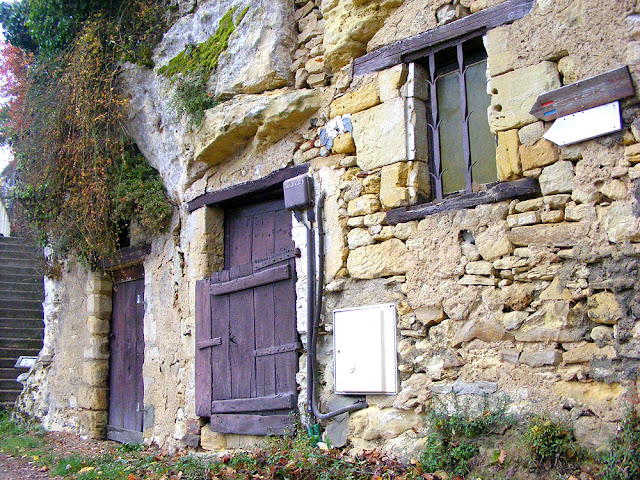 |
| Troglodyte dwelling in the river cliffs above the village of Saint Rémy sur Creuse. |
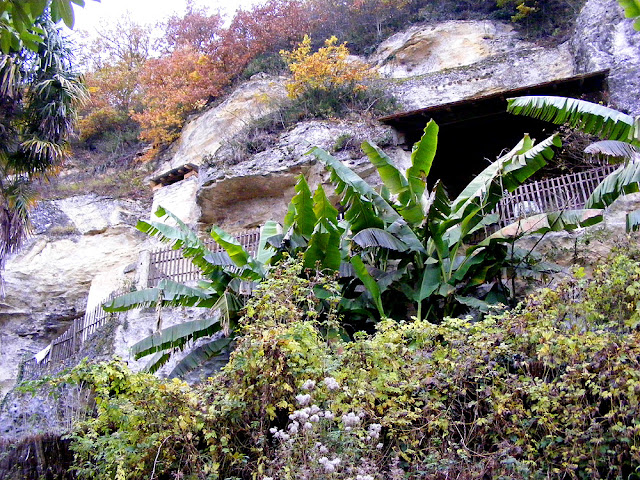 |
| Bananas growing on a river terrace above Saint Rémy sur Creuse. |
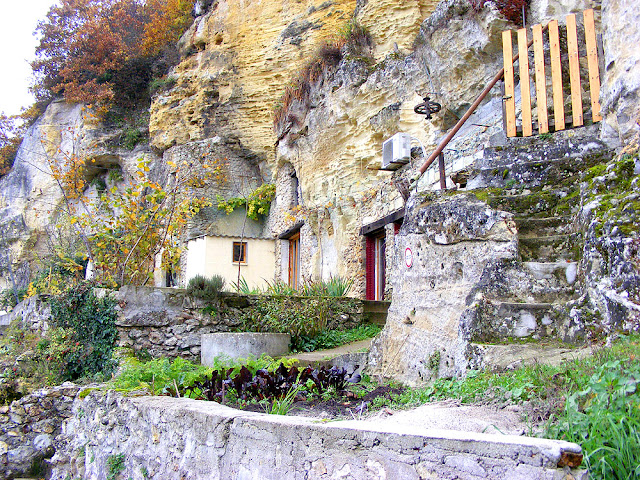 |
| Troglodyte dwelling, with vegetables planted into little pockets of soil here and there on the terrace. |
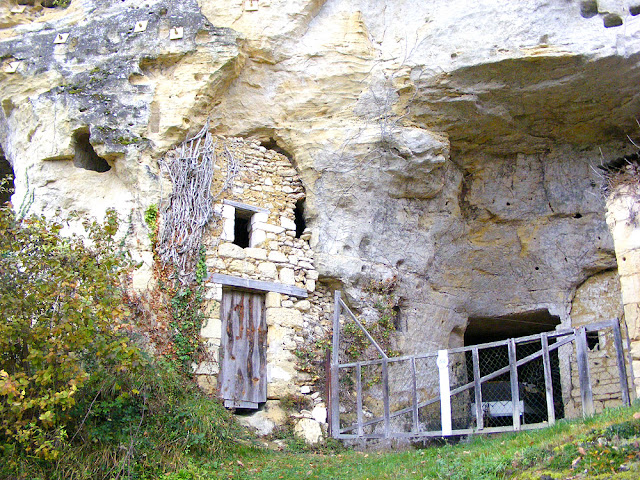 |
| Troglodyte outbuildings. |
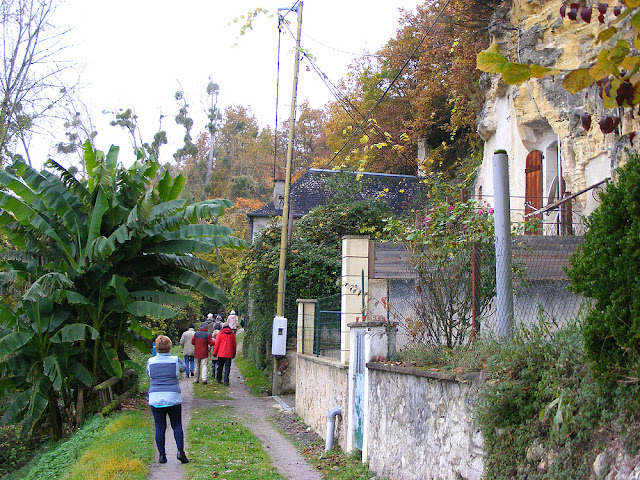 |
| Walking along a street of troglodyte dwellings. |
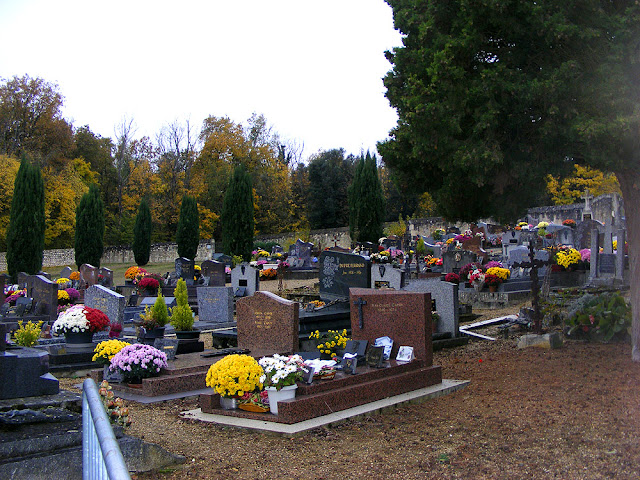 |
| The cemetery is full of chrysanthemums, put there for Toussaint (All Saints). This is why you never give chrysanthemums to a French person -- they are associated with the dead. |

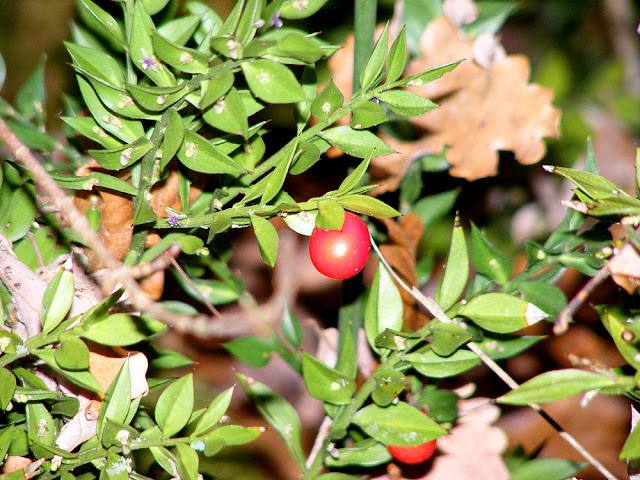
4 comments:
love seeing those houses up close as I've only ever seen them from a distance. these are lovely outside but I could not live in one
melinda: these days with modern lighting and heating they are a lot more appealing.
We looked at a troglodyte house in Villaines-les-Rochers when we were house hunting the first time round. It was cute outside but damp and smelly inside. It would have taken a lot to make it comfortable although it had obviously been inhabited very recently.
I’m glad you now appear to be able to leave comments again.
Jean: yes, some change in Blogger has restored several functions I had lost. Troglos often smell when unoccupied or badly managed. You need to run the heating the whole time at a low level to maintain a constant appropriate relative humidity.
Post a Comment